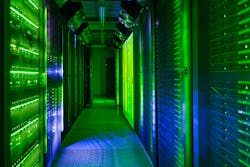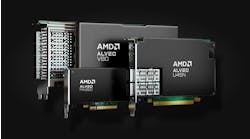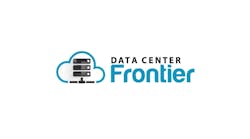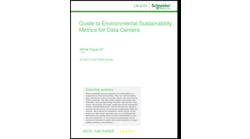Prioritizing environmental sustainability continues to be a hot topic in not just the data center community, but on a much larger, global scale across a variety of industries. When thinking about how a company can become more sustainable, it occurred to me that the implementation of green initiatives go far beyond what that company is deeming as best practices and procedures for themselves. In fact, one could argue that internal regulation is the easy part.
An often overlooked true measure of sustainability within a company isn’t what is being implemented internally, rather, the benchmark extends outward, permeating to the products, partners and collaborators a company chooses to align themselves with. How can a company be deemed a leader in the sustainability movement without ensuring that their partners, who are essentially part of their sustainability initiative, are also on the same page?
For businesses, it’s important to think both inward and outward when prioritizing sustainability. Honing in on the data center industry, where we know sustainability improvements are needed, the industry has committed to three-quarters of data center energy consumption being renewable or carbon-free by 2025 and to being completely climate neutral by 2030, according to a recent article in Information Age. That’s a tall task, considering cloud infrastructure spending is trending steeply, at a rate of 20% per year by some estimates. Hitting those sustainability targets will involve more than just each organization acting individually. To truly see improvements that will have a lasting impact, data center suppliers must also be held to a higher standard to ensure ongoing progress. For instance, future regulations will increasingly target Scope 3 emissions, which expressly includes the practices of a data center’s suppliers and vendors. There are many ways a partner can support the emissions goals and sustainability practices of a data center, but it all hinges on the data center choosing wisely when selecting one.
When it comes to choosing business partners, it is important to seek out the highest standard possible and understand where your potential partner lands on sustainability issues that are a priority for your company. Here are three lenses to look through when evaluating if a business partner and their respective products sync with your sustainability goals:
1. Design and Manufacturing
When deciding on whether or not to purchase a particular product for your business, go back to the basics and learn about your potential partners’ design and manufacturing processes. Are they designing with sustainability in mind? Does their new product development pipeline take sustainability into account for the full life cycle of the product or does it fizzle over time? You will want to pay attention to not only the efficiency of the design of the product, but also the sourcing of the materials used to manufacture the product. Transportation and maintenance of the product are also other areas to consider and weigh whether or not they align with your company’s sustainability objectives.
2. Leading by Example
A company’s commitment to sustainability can be viewed more as a philosophy, rather than an objective. To evaluate whether or not a potential company is a good fit for both your needs and sustainability goals, look to the top. Research leadership roles and responsibilities within your potential partners’ C-Suite and evaluate alignment with your own sustainability framework. Philanthropic efforts, commitment to the prioritization of environmental issues and having a designated person or persons to be a gatekeeper of green goals are all good signs of a strong sustainability partner.
3. Third-Party Acknowledgements
When determining if a company will make a good sustainability partner for your business, gauge their reputation from other partners who you have already had successful sustainable working experiences with. It is also prudent to pay attention to accolades the company has received from reputable sources. Check out award wins, certifications and published content that can help to shed a light and provide unbiased, third-party validation and support for why this company would make a good partner. Notable achievements and recognitions for not only products, but company leaders also bode well for the integrity of the company and speak to the type of business relationship you can expect to have.
Sustainability is not a passing trend, rather an adaptation of beliefs that businesses will be looking to incorporate into their substructure for the foreseeable future. As a provider of services to the data center industry, we at Kohler understand this philosophical shift firsthand. To ensure that our commitments to creating a cleaner environment do not wane, we have not only incorporated efficiency and sustainability into our design process, but have also adopted multi-functional processes and metrics, held accountable at all levels of our organization; from entry level staff to our Chief Sustainability Officer. Creating internal initiatives are as important as evaluating external partners and products you bring into the fold. Look for businesses that align with your company’s current and future sustainability goals and that have not only proven track records, but a commitment to improvement and collaboration.
Steve Zielke is Senior Channel Manager - Data Centers at Kohler Power Systems. Contact Kohler to learn more about their data center solutions.




